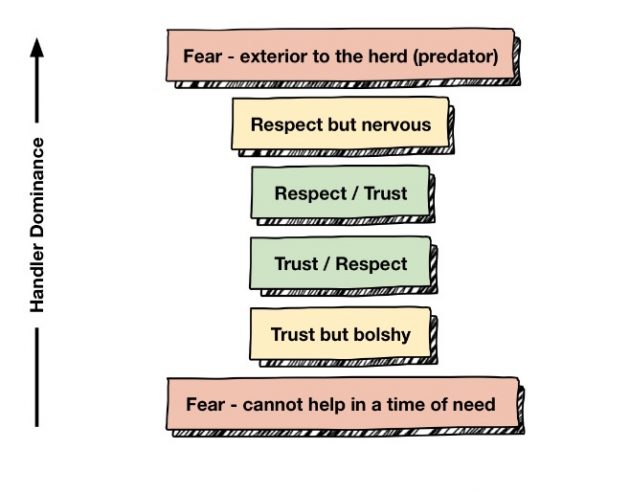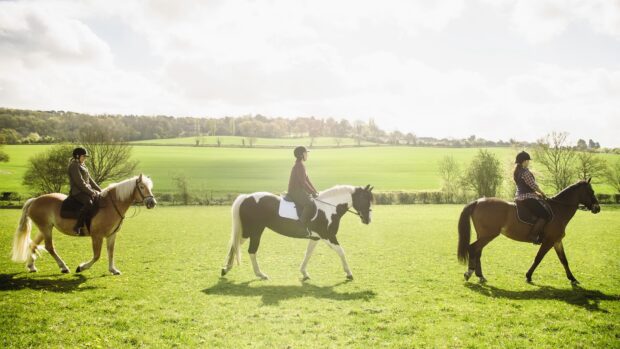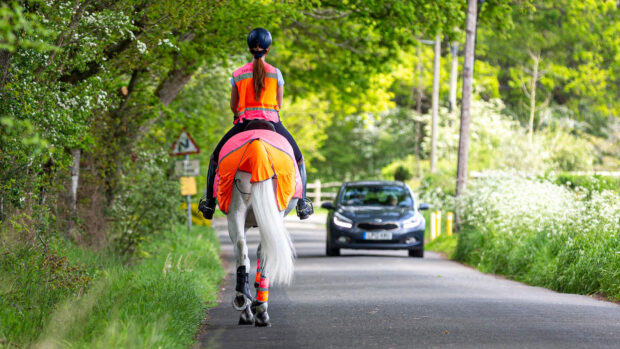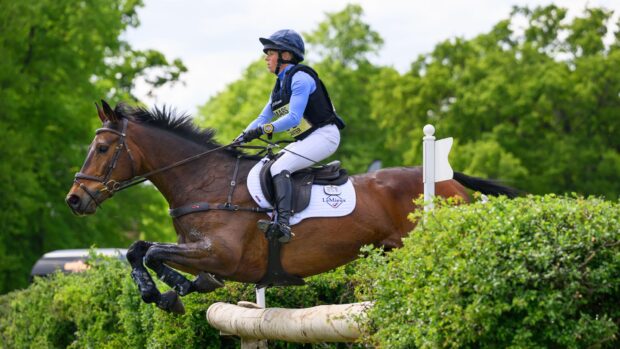Jason Webb of Australian Horse Training is a renowned UK-based horse trainer with a passion for starting young horses, solving equine problems and teaching riders of all abilities and ambitions develop and strengthen the partnership they have with their horses. Here Jason gives one H&H forum user advice on desensitising a young horse
Q: “Can you over-desensitise a youngster? A new 14-month-old colt arrived two weeks ago. He has been doing some leading training a couple of times a week including around the yard, up to trailers, past scary chickens over a flowing drainage ditch and into and out of school. He is learning fast. Checking him in the field tonight I can give him a good scratch all over, patting round his ears and where a saddle would go, scratching under the back of his belly (where my thoroughbred tries to kick you if you even brush!) and sitting on the fence well above him while randomly patting about his neck (he didn’t wander off so I assume he thought it was OK). Once leading is OK, the next thing is picking his feet up then I was wondering about leading over poles, into a trailer, walking on tarpaulin, or that sort of thing. I was thinking doing this still only once or twice a week but I think we could cover a lot of ground in the next couple of years. Do you have any views on whether you can over-desensitise a horse if they appear to cope it with obviously, or should I do leading and feet lifting and leave him to be a baby a good while yet? While he’s so amenable it feels like a good time for him to learn, but I welcome your opinion.”
A: You want a horse to be humanised when they are young. This means getting them confident with humans and our environment. This is basically what you’ve been doing and this is great.
Little and often is the key with young horses. Doing too much creates over familiarity and they can become challenging.
Young horses have far less try in them then older horses although this varies from horse to horse. When a horse is in a learning state and is calm and attentive you can only ask so much before they become bored and and start looking for a way out. On the flip side, if you get a flighty youngster handling them young will mean they will be quick to give up on the flight option than when they are older.
Continued below…
Related articles:
Pay attention to movement
Trust and respect are vital. This graph is out of the pre-training knowledge section of Your Horsemanship and it explains this nicely.

Horses that are handled a lot as youngsters without due care of how they move around you can become over confident/familiar. This can result in a horse that feels it is ok to challenge you when they are unsure or don’t want to do something. I get horses that are easy to start until they are asked to try. Then you find out your nice quiet horse has an attitude.
Untouched horses can become over sensitive and untrusting so there is a balance.

Jason Webb
My advice is to do a block of two to five days once a month, ideally 15 minute sessions, but this can vary if you want to get them well handled. This way they spend most of their time learning to be a horse without interference and they get a block of work which has an objective, structure and continuity.
For more information on Jason Webb and his online training base Your Horsemanship, where you can learn a foundation in horse training with online lessons in groundwork, starting, and ridden fundamentals, visit his website




